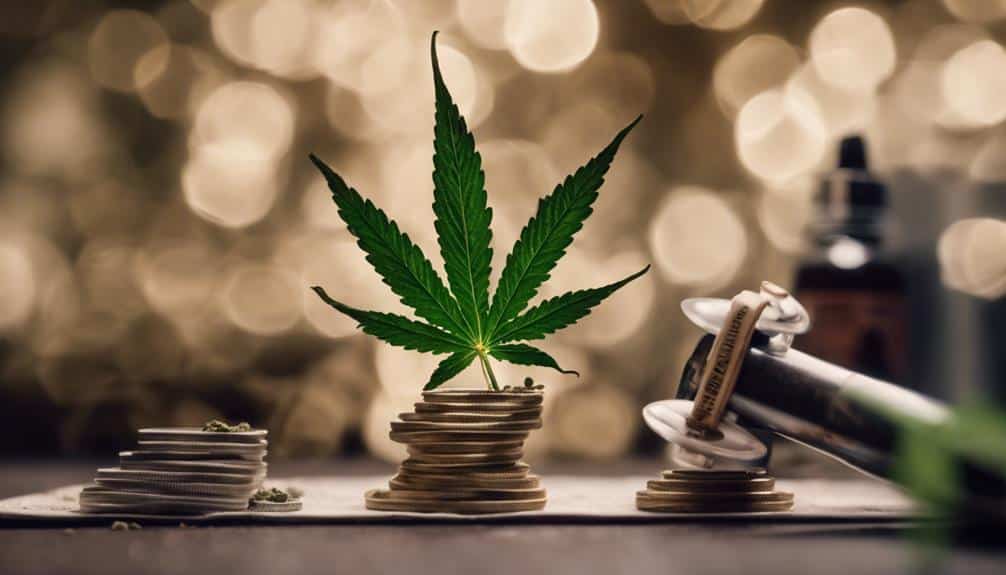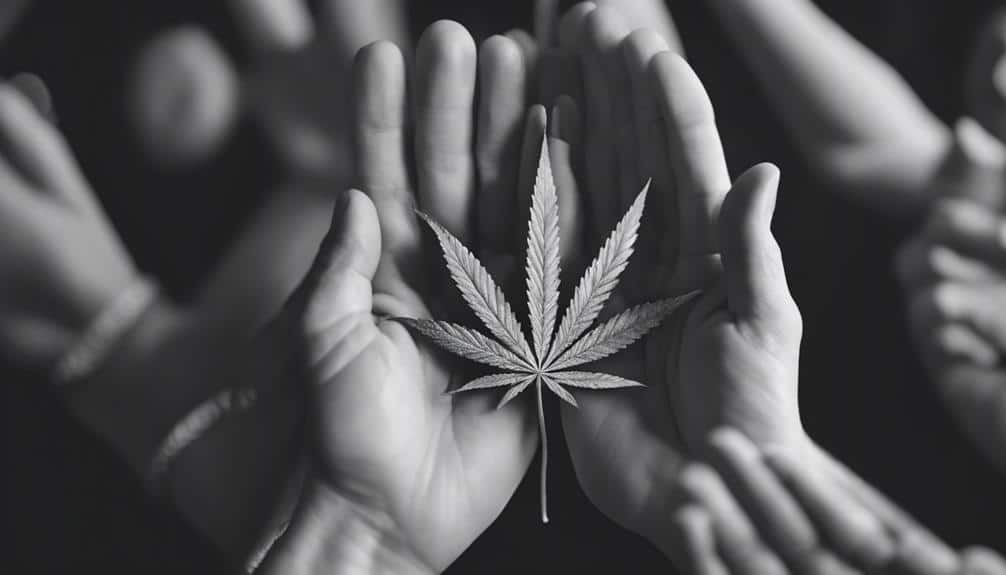Like a storm brewing on the horizon, the War on Drugs has cast a long shadow over our society. You’ve seen how cannabis prohibition has disproportionately affected marginalized communities, creating social inequities that persist to this day.
Table of Contents
But now, as the winds of change begin to blow, cannabis legalization is emerging as a tool for social justice. It’s not just about economic and health benefits – it’s about righting historical wrongs.
But how can this shift truly promote social justice? This question sparks a compelling yet complex debate you’ll want to explore further.
Historical Overview of the Drug War

To understand the current debate on cannabis legalization, it’s crucial to delve into the historical roots of the drug war. This war is a complex web of policies and attitudes that have shaped societal perspectives and legislation over decades. Ignited in the early 20th century, its origins trace back to international perspectives and racial profiling. The interplay between these two elements has had profound implications on drug policies worldwide.
The drug war was marked from its outset by international perspectives that targeted specific substances and their users. Cannabis was villainized through racial profiling with narratives associating its use with minority groups. This approach wasn’t confined to just the United States; it echoed in international settings, creating a global wave of prohibitionist attitudes.
This historical context is pivotal in understanding contemporary discourse on cannabis. It’s not merely about the substance itself, but also about the societal constructs and prejudices woven into the fabric of the drug war. By studying and understanding this history, you’re better equipped to advocate for fair and equitable policies, recognizing the importance of dismantling negative stereotypes that have perpetuated injustice for far too long.
Cannabis Prohibition: Roots and Impact
Building on this historical backdrop, let’s examine the roots of cannabis prohibition and its profound impact on society. The prohibition stems from early 20th-century policies often deeply entwined with racial disparities. Certain racial and ethnic groups were disproportionately associated with cannabis use, creating a stigma that persists today.
This led to legal implications affecting society at large. Laws were introduced to penalize possession and use of cannabis with harsh sentences disproportionately affecting marginalized communities. These laws didn’t just lead to mass incarcerations but also created a cycle of poverty and criminality, making it hard for individuals to reintegrate into society post-incarceration.
Moreover, cannabis prohibition has resulted in lost potential economic and social benefits. The illegal status of cannabis has prevented exploration of its potential medicinal benefits while missing out on possible tax revenue from a regulated market.
The Social Inequities of Drug Policies

The stark disparities in drug law enforcement reveal a pattern of social inequities that have historically marginalized certain communities. Racial disparities are evident in disproportionate rates of arrests, convictions, and sentences for drug offenses among minority communities. Despite similar rates of drug use across racial and ethnic groups, people of color are significantly more likely to be targeted and penalized.
Policy reform is urgently needed to address these injustices. It’s not just about making laws more lenient but rather ensuring they’re fair and applied equally to all. This includes reexamining mandatory minimum sentencing laws, which have been criticized for their role in perpetuating racial disparities.
You can play a part in this change. By advocating for policy reform, you contribute to a more equitable system. Understanding how drug policies contribute to social inequities positions you better to address these issues in your community.
In this war on drugs, it’s not just about combating substance abuse; it’s about fighting for social justice. It’s about recognizing systemic biases within our drug laws and working towards a system that truly serves all members of our society.
Cannabis Legalization: Economic and Health Benefits
Shifting gears, let’s delve into the economic and health benefits that can come from cannabis legalization – a move gaining momentum across the globe.
The potential economic windfall makes it clear why so many governments are considering this change. A legal cannabis market can stimulate economic growth through job creation, increased tax revenue, and the emergence of a new industry: Cannabis Tourism.
Medicinal applications of cannabis also present significant health benefits. Experts suggest that it can help manage chronic pain, reduce anxiety, and even aid in treating certain neurological disorders.
- Cannabis Tourism can boost local economies by creating jobs and attracting tourists.
- Legalizing cannabis could lead to substantial tax revenue which could be reinvested in public services.
- Regulating cannabis promotes safer use by ensuring quality control and consumer protection.
- Medicinal cannabis offers a natural alternative for treating various health conditions.
- Research opportunities into cannabis’ medicinal properties could lead to further health breakthroughs.
In essence, cannabis legalization isn’t just about personal freedom; it’s about harnessing potential economic and health benefits for the greater good.
How Legalization Promotes Social Justice

Beyond its economic and health implications, legalizing cannabis also plays a pivotal role in promoting social justice, particularly in communities disproportionately affected by the war on drugs. Decriminalization impacts these communities by reducing the number of cannabis-related arrests which have historically targeted minority groups. This means fewer people being caught in the criminal justice system, reducing significant social and economic costs associated with incarceration.
Fair sentencing reforms accompanying legalization can rectify past injustices. For instance, people previously incarcerated for cannabis-related offenses can have their sentences reconsidered or even expunged. This not only corrects past wrongs but also opens doors for those individuals to reintegrate into society, get jobs, and contribute positively to their communities.
Legalization is a two-pronged tool for social justice. On one hand, it lessens the burden on communities heavily impacted by drug laws. On the other hand, it provides an avenue for those previously penalized to rebuild their lives. By understanding these dynamics, you’re better equipped to serve others and promote a more just society.
Conclusion
By embracing cannabis legalization, you’re endorsing not just economic growth but also social justice. In states where it’s legal, cannabis sales hit $17.5 billion in 2020, a 46% increase from 2019. But it’s not just about the money. It’s about undoing the social inequities of drug policies. Legalization aims to rectify past wrongs and ensure a more equitable future.
I warmly invite you to take a step further in this journey. Visit us at Doc Greenly. We have a wealth of information and resources that can help you understand this issue more deeply. Visit our website at docgreenly.com or if you prefer a more personal interaction, give us a call. We’d be more than happy to chat with you. Let’s rethink the war on drugs together – it’s high time.

